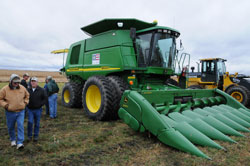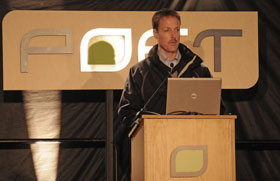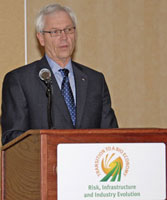 Renewable energy proposals had mixed results in yesterday’s elections, with Missouri easily passing one measure but California rejecting two others.
Renewable energy proposals had mixed results in yesterday’s elections, with Missouri easily passing one measure but California rejecting two others.
This entry from the InformationWeek blog has details:
In Missouri, Proposition C was passed, requiring investor-owned electric utilities “to generate or purchase electricity from renewable energy sources such as solar, wind, biomass, and hydropower with the renewable energy sources equaling at least 2% of retail sales by 2011 increasing incrementally to at least 15% by 2021, including at least 2% from solar energy; and restricting to no more than 1% any rate increase to consumers for this renewable energy.”
In California, Proposition 7 on renewable energy generation was handily defeated. With 77% of precincts reporting, the measure lost by a 2-to-1 margin. Likewise, Proposition 10 failed by a wide margin. Had it been approved, Proposition 10 would, according to the official voter information guide, “eliminate a credit that allows oil and gas companies to deduct property taxes from severance taxes. The change would bring in an estimated $321 million in the first year, with most going to college scholarships, plus communities affected by energy development, wildlife habitat, and clean energy projects.”
California’s Prop 10 came under fire from some environmental groups… as well as some readers of this blog (see my post from Oct. 18th and the associated comments). Just a quick note to all readers: I’m not necessarily promoting any of the items I blog about. I just want to make you aware of these items. It’s up to you to evaluate these things for yourself (whether a ballot measure or some new product). I blog… you decide.
 There are several farm equipment manufacturers working with POET on corn cob harvesting solutions. One of them is John Deere. Of the current options for harvesting/collecting the cobs, Deere is working on the corn cob mix kit (CCM) option. It’s basically an attachment to the combine according to John Deere’s Barry Nelson, who was attending the POET Project LIBERTY field day.
There are several farm equipment manufacturers working with POET on corn cob harvesting solutions. One of them is John Deere. Of the current options for harvesting/collecting the cobs, Deere is working on the corn cob mix kit (CCM) option. It’s basically an attachment to the combine according to John Deere’s Barry Nelson, who was attending the POET Project LIBERTY field day.


 In special demand will be
In special demand will be 
 Jeff Broin is CEO of
Jeff Broin is CEO of  As I was driving into Emmetsburg, IA last night I saw this plant off in the distance.
As I was driving into Emmetsburg, IA last night I saw this plant off in the distance.  Renewable energy proposals had mixed results in yesterday’s elections, with Missouri easily passing one measure but California rejecting two others.
Renewable energy proposals had mixed results in yesterday’s elections, with Missouri easily passing one measure but California rejecting two others. VeraSun announced that it is indefinitely delaying the startup of its 110 million gallon per year ethanol biorefinery in Janesville, Minnesota but will continue operations at its 14 facilities across an eight-state region.
VeraSun announced that it is indefinitely delaying the startup of its 110 million gallon per year ethanol biorefinery in Janesville, Minnesota but will continue operations at its 14 facilities across an eight-state region.
 U.S. Agriculture Secretary Ed Schafer today announced the resignation of Agriculture Under Secretary for Rural Development Thomas Dorr.
U.S. Agriculture Secretary Ed Schafer today announced the resignation of Agriculture Under Secretary for Rural Development Thomas Dorr.